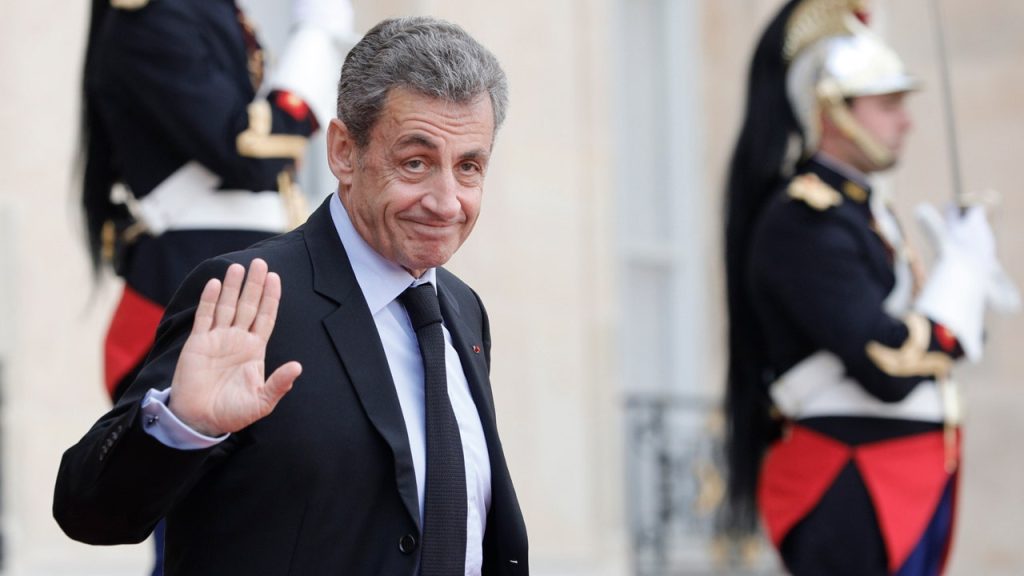The Final Verdict: Sarkozy’s Corruption Conviction Upheld
Nicolas Sarkozy, the former president of France, has reached the end of the road in his legal battle against corruption charges. France’s highest court, the Court of Cassation, has delivered its final verdict, upholding the appeals court decision that found Sarkozy guilty of corruption and influence peddling. This marks a historic moment in French politics, as it’s the first time a former president has received a prison sentence for actions committed during their presidency. The charges stem from Sarkozy’s attempts to bribe a magistrate, Gilbert Azibert, in exchange for confidential information regarding a separate legal case involving the former president. Despite Sarkozy’s fervent denials and claims of injustice, he now faces a one-year prison sentence, likely to be served under house arrest with electronic monitoring.
The "Bismuth" Affair: Unveiling a Web of Corruption
The case, often referred to as the "Bismuth" affair, revolves around intercepted phone conversations between Sarkozy and his lawyer, Thierry Herzog. Investigators, probing the financing of Sarkozy’s 2007 presidential campaign, discovered the use of secret mobile phones registered under the alias "Paul Bismuth." These wiretapped conversations revealed discussions between Sarkozy and Herzog that suggested a quid pro quo arrangement with Azibert. The prosecution argued that Sarkozy and Herzog promised Azibert a prestigious position in Monaco in return for insider information about a case involving Sarkozy. Although Azibert never received the promised position and the case in question was eventually dropped, the court determined that the offer itself constituted corruption under French law, regardless of its fulfillment.
Sarkozy’s Response: Defiance and Pursuit of International Recourse
In the aftermath of the verdict, Sarkozy has maintained his innocence and expressed outrage at what he perceives as a profound injustice. He has vowed to take his case to the European Court of Human Rights, hoping for a condemnation of France and a reversal of his conviction. Sarkozy’s lawyer has confirmed that the former president will comply with the ruling, meaning he will wear an electronic bracelet while serving his sentence. The defiant tone of Sarkozy’s statements suggests that he intends to continue fighting to clear his name, even as he faces the consequences of the French court’s decision. He sees his legal battles as a matter of principle and refuses to accept the stain of corruption on his legacy.
A Tumultuous Legal Landscape: Sarkozy’s Ongoing Battles
This corruption case is not the only legal challenge facing the former president. Sarkozy is entangled in a web of legal proceedings, including an upcoming trial related to accusations of illicit campaign financing. He is accused of accepting millions of dollars from the late Libyan dictator Muammar Gaddafi to fund his successful 2007 presidential bid. Sarkozy vehemently denies these allegations, claiming that they are politically motivated attempts to discredit him. The Gaddafi case represents a significant threat to Sarkozy, with the potential for even more severe penalties if convicted.
A Legacy Tarnished: From Presidential Power to Legal Peril
The conviction casts a long shadow over Sarkozy’s political career. He served as France’s president from 2007 to 2012, leaving office after a single term. Despite his retirement from public life in 2017, he continues to exert influence within French conservative politics. However, his legal troubles have undoubtedly tarnished his reputation and legacy. The image of a former president entangled in multiple corruption scandals is a stark contrast to the powerful figure he once was.
A Watershed Moment for French Politics: Accountability and the Rule of Law
The Sarkozy case holds profound implications for French politics. It underscores the principle that no one, even a former president, is above the law. The conviction serves as a powerful reminder of the importance of accountability and transparency in public office. The case has also sparked debate about the balance between pursuing justice and respecting the stature of former leaders. Regardless of one’s perspective, the Sarkozy case stands as a watershed moment in French legal and political history, demonstrating the reach of the law and the potential consequences for those who abuse their power.


